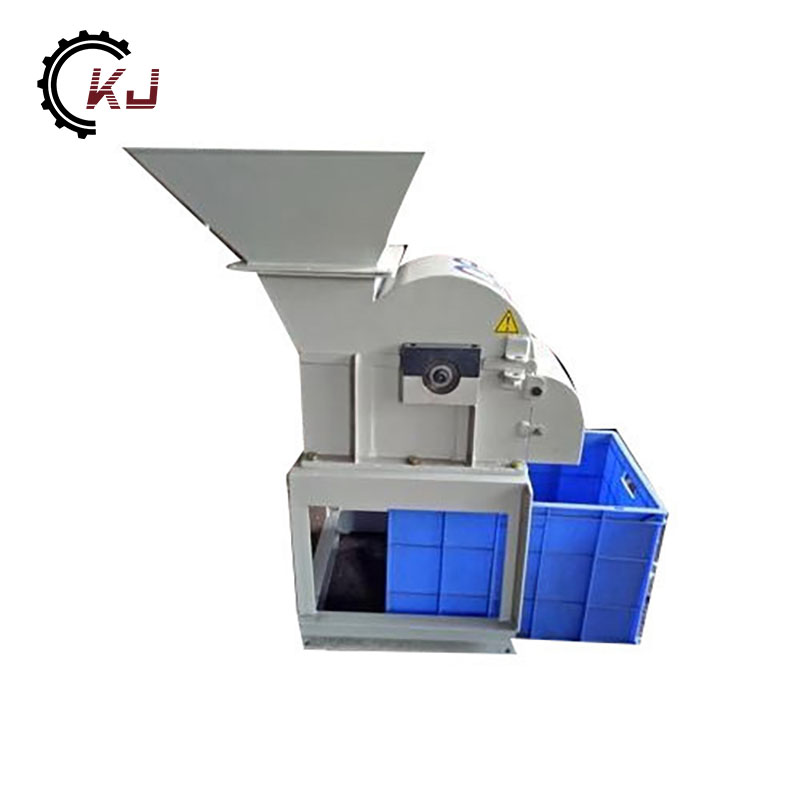Ensuring Peak Performance: Essential Maintenance Procedures for Plastic Crusher Machines
2024-03-22
Plastic crusher machines are indispensable tools in the recycling industry, transforming plastic waste into reusable materials and contributing to environmental sustainability. To maintain the optimal performance and longevity of these machines, regular maintenance is essential. In this blog, we'll explore the key maintenance procedures required to ensure the optimal performance of a plastic crusher machine, highlighting the importance of proactive maintenance practices in recycling operations.
1. Regular Inspection and Lubrication:
Routine inspection and lubrication of critical components are essential maintenance procedures for plastic crusher machines. Operators should inspect the machine regularly for signs of wear, damage, or misalignment in components such as blades, bearings, shafts, and belts. Lubrication of moving parts ensures smooth operation, reduces friction, and prolongs the lifespan of mechanical components.
2. Blade Maintenance and Replacement:
The cutting blades are the heart of a plastic crusher machine, responsible for shredding plastic waste into smaller pieces. Proper maintenance of the blades is crucial for ensuring efficient material processing and preventing premature wear or damage. Operators should regularly inspect the blades for signs of dullness, chipping, or deformation and promptly replace them as needed to maintain cutting performance.
3. Cleaning and Decontamination:
Regular cleaning and decontamination of the crusher machine are essential to prevent the buildup of residue, debris, or contaminants that can affect performance and hygiene. Operators should thoroughly clean the machine after each use, removing plastic residue, dust, and other foreign particles from the cutting chamber, feed opening, and discharge chute. Additionally, decontamination procedures should be followed to minimize the risk of cross-contamination between different types of plastic materials.
4. Adjustment and Calibration:
Periodic adjustment and calibration of the crusher machine's settings are necessary to maintain optimal performance and ensure consistent output quality. Operators should verify and adjust parameters such as blade clearance, rotor speed, feed rate, and discharge size according to the requirements of the recycling process and the characteristics of the plastic waste being processed.
5. Electrical System Maintenance:
The electrical system of a plastic crusher machine requires regular inspection and maintenance to ensure safe and reliable operation. Operators should check electrical connections, wiring, and control panels for signs of damage, corrosion, or overheating. Additionally, safety features such as emergency stop buttons, interlocks, and overload protection devices should be tested regularly to ensure proper functioning.
6. Training and Operator Awareness:
Comprehensive training and operator awareness are essential components of effective maintenance procedures for plastic crusher machines. Operators should receive training on proper machine operation, maintenance protocols, safety procedures, and hazard recognition. By empowering operators with the knowledge and skills to perform routine maintenance tasks, recycling facilities can prevent downtime, minimize disruptions, and ensure the longevity of their equipment.
7. Documentation and Record-Keeping:
Maintaining detailed documentation and records of maintenance activities is crucial for tracking the performance and condition of the crusher machine over time. Operators should keep records of maintenance schedules, inspection findings, lubrication records, blade replacements, and any repairs or adjustments made to the machine. This documentation provides valuable insights into the machine's maintenance history and helps identify trends or patterns that may require attention.
Conclusion:
In conclusion, proactive maintenance procedures are essential for ensuring the optimal performance, reliability, and longevity of plastic crusher machines in recycling operations. By implementing regular inspection and lubrication, blade maintenance and replacement, cleaning and decontamination, adjustment and calibration, electrical system maintenance, operator training, and documentation practices, recycling facilities can maximize the efficiency and effectiveness of their equipment. By prioritizing maintenance, recycling facilities can minimize downtime, reduce repair costs, and contribute to a more sustainable and efficient plastic recycling process.



